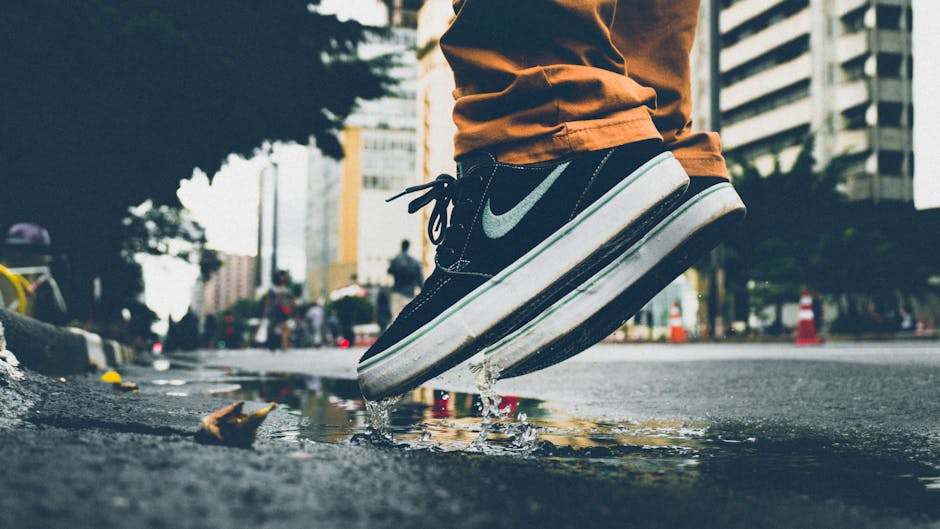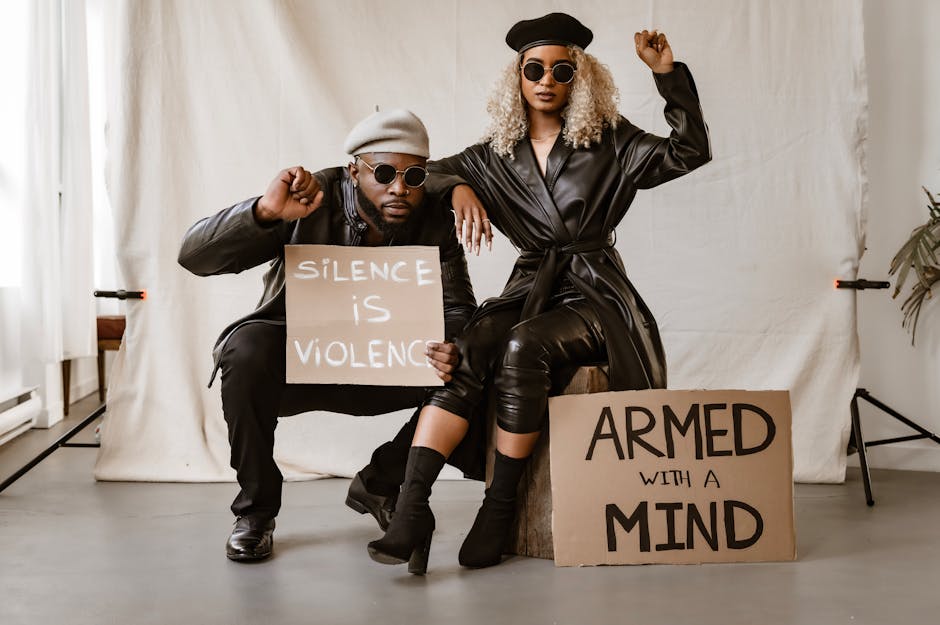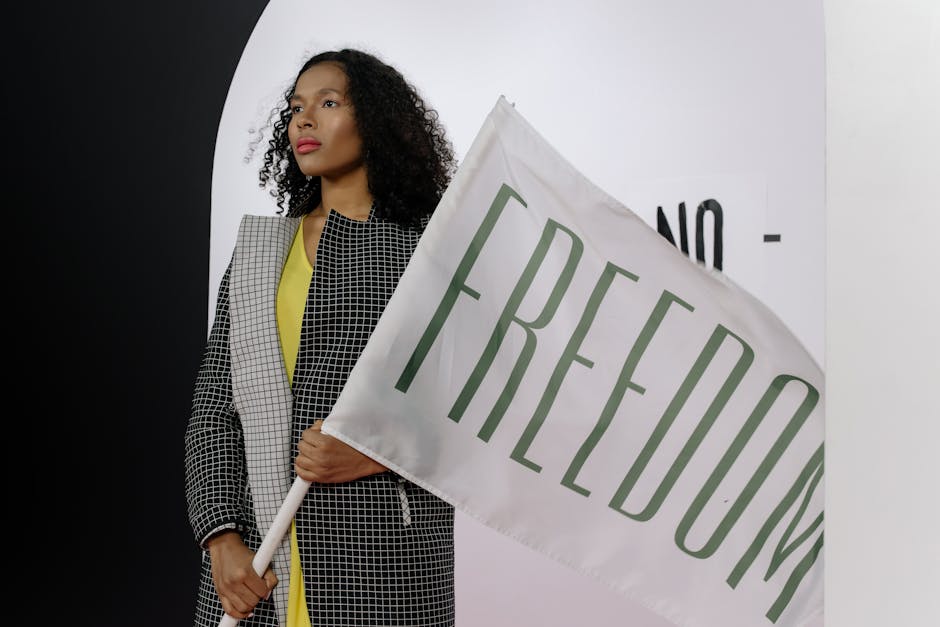Fashions Societal Impact: Exploring the Influence of Clothing on Culture and Society
When we think about fashion, we often envision runways, magazines, and shopping malls. However, the impact of fashion goes far beyond the clothes we wear. Fashion has the power to shape our identities, influence our behaviors, and reflect the values of our society. In this article, we will delve into the intricate relationship between fashion and society, exploring how clothing choices can have profound effects on individuals and communities.
The Evolution of Fashion: From Function to Expression

Throughout history, clothing has served a practical purpose: protecting our bodies from the elements. However, as societies evolved, fashion began to take on a new role as a form of self-expression. From the elaborate garments of royalty to the rebellious styles of subcultures, clothing has been used to communicate status, identity, and beliefs. The evolution of fashion mirrors the changes in society, reflecting shifting values, norms, and ideals.
For example, in the 1920s, the rise of the flapper style represented a rejection of traditional gender roles and a newfound sense of freedom for women. Similarly, the punk movement of the 1970s used fashion as a form of protest against mainstream culture, with ripped clothing and unconventional hairstyles serving as symbols of defiance.
The Influence of Fashion on Body Image and Self-Esteem

One of the most significant impacts of fashion on society is its influence on body image and self-esteem. The fashion industry has long been criticized for promoting unrealistic beauty standards, leading to body dissatisfaction and low self-esteem among individuals. The prevalence of airbrushed models in advertisements and the use of size-zero mannequins in stores can create an unattainable ideal of beauty that can be damaging to one’s self-perception.
However, in recent years, there has been a growing movement towards body positivity and inclusivity in the fashion industry. Brands are increasingly featuring diverse models of different sizes, ethnicities, and abilities, challenging the traditional norms of beauty and celebrating individuality. This shift towards greater representation in fashion has the potential to empower individuals to embrace their unique bodies and feel more confident in their skin.
Fashion as a Driver of Social Change

In addition to influencing individual perceptions of self, fashion has the power to drive social change on a larger scale. Throughout history, clothing has been used as a tool for political expression, activism, and solidarity. From suffragettes wearing white dresses as a symbol of purity and unity to activists donning black clothing in support of the #MeToo movement, fashion has been used to convey messages of resistance and empowerment.
Moreover, the rise of sustainable fashion has sparked a global movement towards more ethical and environmentally conscious clothing practices. With increasing awareness of the environmental impact of fast fashion, consumers are demanding transparency and accountability from brands, leading to a shift towards more sustainable and eco-friendly fashion alternatives. This shift towards sustainability in fashion is not only beneficial for the planet but also has the potential to create positive social change by improving working conditions in the fashion industry and fostering a more equitable global economy.
The Role of Fashion in Cultural Identity

Clothing plays a crucial role in shaping cultural identity and heritage, serving as a visual representation of traditions, beliefs, and values. Different cultures around the world have distinct styles of dress that reflect their unique histories and customs. For example, the vibrant colors and intricate patterns of traditional African attire convey a rich cultural heritage, while the flowing silhouettes of Japanese kimonos symbolize elegance and refinement.
Furthermore, the globalization of fashion has led to a fusion of diverse cultural influences, creating a rich tapestry of styles and aesthetics. In today’s interconnected world, individuals have the freedom to mix and match clothing from different cultures, creating unique and hybrid identities that transcend traditional boundaries. This blending of cultural elements in fashion can foster cross-cultural understanding and appreciation, promoting diversity and inclusivity in society.
The Economic Impact of Fashion
Aside from its cultural and social significance, fashion also plays a crucial role in the global economy. The fashion industry is a multi-billion dollar sector that encompasses design, manufacturing, retail, and marketing. The production and consumption of clothing have far-reaching economic implications, influencing job creation, trade relationships, and consumer spending patterns.
However, the fast fashion model, characterized by rapid production cycles and disposable clothing, has come under scrutiny for its negative impact on the environment and labor practices. The demand for cheap and trendy clothing has led to exploitative working conditions in factories, excessive waste generation, and the depletion of natural resources. As consumers become more conscious of these issues, there is a growing movement towards ethical and sustainable fashion practices that prioritize transparency, fair labor practices, and environmental stewardship.
Expert Opinions: Perspectives on Fashions Societal Impact
To gain further insights into the societal impact of fashion, we reached out to experts in the field for their perspectives:
Dr. Jane Smith, a fashion psychologist, emphasizes the psychological effects of clothing on individuals: “Fashion has the power to shape our moods, behaviors, and perceptions of self. By understanding the psychological mechanisms behind clothing choices, we can harness the transformative power of fashion for positive change.”
John Doe, a sustainable fashion advocate, highlights the importance of ethical fashion practices: “The fashion industry has a responsibility to prioritize sustainability and ethical practices to protect both people and the planet. By choosing ethically made clothing, consumers can support a more equitable and environmentally conscious fashion industry.”
Conclusion: The Ongoing Impact of Fashion on Society
As we have explored in this article, fashion’s societal impact extends far beyond the realm of clothing. From influencing body image and self-esteem to driving social change and shaping cultural identity, fashion plays a multifaceted role in society. As we move towards a more sustainable and inclusive fashion industry, it is essential to recognize the power of clothing as a vehicle for expression, empowerment, and social transformation.
By being mindful of the choices we make as consumers and advocating for positive change within the fashion industry, we can harness the transformative potential of fashion to create a more equitable and compassionate society. Let us embrace the power of fashion to inspire, connect, and uplift individuals and communities around the world.
Whether through bold statements or subtle nuances, fashion has the ability to communicate, provoke, and unite us in ways that transcend language and culture. As we navigate the ever-evolving landscape of fashion and society, let us remember the profound impact that our clothing choices can have on ourselves and the world around us. In the words of renowned fashion designer Coco Chanel, “Fashion is not something that exists in dresses only. Fashion is in the sky, in the street; fashion has to do with ideas, the way we live, what is happening.”




